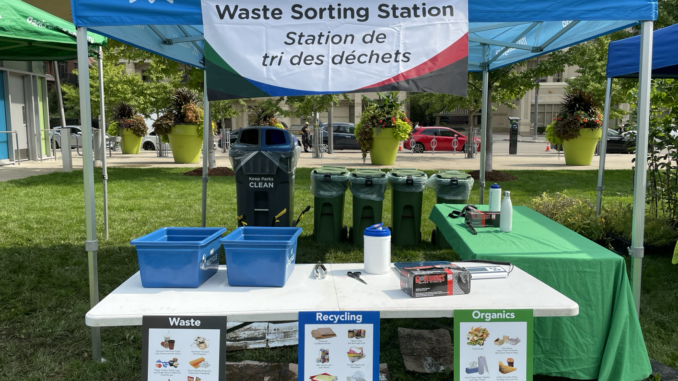
In a concerted effort to combat the growing environmental challenge posed by landfill waste, Mississauga has emerged as a beacon of sustainability, pioneering initiatives to transition towards a circular economy model. With an eye on reducing the city’s ecological footprint and fostering a culture of waste reduction, Mississauga has implemented a series of innovative strategies aimed at curbing excessive waste and promoting resource conservation.
Recent data from the Ontario Waste Management Association underscores the urgency of the situation, revealing that Ontarians collectively dispatch approximately 12 million tonnes of waste to landfills annually. This staggering figure equates to roughly 2.2 kilograms, or nearly 5 pounds, of waste per person per day. Many of these discarded materials, which could have been repurposed or recycled, contribute to the mounting landfill crisis.
Recognizing the pressing need for action, Mississauga has prioritized programs and initiatives aimed at diverting waste from landfills. Embracing the principles of the circular economy model, the city is spearheading efforts to minimize waste by extending the lifespan of products and materials through repair, repurposing, and recycling. By adopting this holistic approach, Mississauga aims to mitigate the need for new materials, reduce carbon emissions, and conserve energy.
One notable example of the city’s commitment to waste diversion is evident in its extensive renovation projects. During the refurbishment of the Hazel McCallion Central Library, over 120,000 kilograms of materials were salvaged and diverted from landfills, showcasing the efficacy of sustainable construction practices. Similarly, the Living Arts Centre recently completed a waste diversion project, successfully donating more than 4,000 kilograms of furniture to local charities and organizations.
Furthermore, Mississauga has intensified its focus on organic waste diversion, implementing waste sorting stations at major events and promoting the use of green bins for compostable materials. These efforts not only reduce landfill waste but also mitigate the release of harmful greenhouse gases, such as methane, which contribute to climate change.
In addition to these on-the-ground initiatives, the city has integrated waste reduction goals into its strategic plans, including the Climate Change Action Plan and the Mississauga Economic Development Strategy 2020-2025. These comprehensive frameworks provide a roadmap for sustainable development and underscore Mississauga’s commitment to environmental stewardship.
Encouraging community engagement is also a cornerstone of Mississauga’s waste reduction strategy. Residents are encouraged to participate in the circular economy by repairing and repurposing items, donating unwanted goods, embracing paperless options, and diverting organic waste through green bins. The city provides resources and facilities, such as Makerspaces equipped with tools like sewing machines and 3D printers, to empower residents in their sustainability journey.
As Mississauga continues to forge ahead on its path towards a circular economy, the city remains steadfast in its commitment to building a greener, more resilient community. By harnessing the collective efforts of residents, businesses, and policymakers, Mississauga is laying the groundwork for a more sustainable future, one where waste is minimized, resources are conserved, and the environment thrives.

Leave a Reply